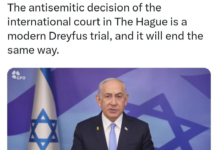The situation in Syria has been completely transformed by the unanticipated vigour with which al-Qaeda has entered the fray and turned everything upside down, writes Abdelbari Atwan.
Now, anything might happen and the only thing that is certain is the escalation of bloodletting on all sides and the continued misery of the victims of this horrific war.
From one perspective, only a miracle will salvage the situation. That miracle would be the unification of all the other factions and brigades in Syria (even temporarily) to declare war on the Islamic State of Iraq and Shams (ISIS) and other al-Qaeda-linked groups in order to weed them out, without mercy or pity, as soon as possible.
We must point out that we predicted the current development in Syria at least two years ago.
The US and its allies are about to repeat their experience in post-war Iraq. In Iraq, they were able to create the “Awakening” brigades to fight al-Qaeda and associated organizations – specifically, the Islamic State of Iraq (ISI) which had become extremely powerful in that country by 2006.
Iraq and Syria
Let us first look at what has happened in Iraq. The Awakening was initially successful. Tribal leaders and other Sunnis were basically bribed with salaries and promises of power-sharing to turn against and fight the ISI. In the past week, the ISI has demonstrated its renewed strength by taking over Fallujah and other parts of Anbar province.
Subscribe to our newsletter and stay updated on the latest news and updates from around the Muslim world!
Appeals by Prime Minister Nuri al-Maliki to the Awakening forces to help him again have fallen on deaf ears because he reneged on all his promises, cut their pay and did not provide them with employment or positions of power. Many Sunnis in Iraq now see in the ISI a means to assert their rights and claims to a just share in the country’s wealth and future.
In Syria, four groups have now united to declare war on the ISIS: the Islamic Salvation Front, the Free Syria Army (FSA), Jaish al-Mujaheddin and the Syrian Revolutionary Front. All these groups are supported by Saudi Arabia.
Fierce fighting has broken out between the ISIS and the other opposition groups. The ISIS has tried to take over other groups’ road blocks and is threatening to withdraw from the front line defending Aleppo city, allowing regime forces to enter it. The other groups accuse the ISIS of serving the interests of the regime.
Paradoxically, the more extremist groups in the ISF share the aims of the ISIS – namely establishing an Islamic state in Syria.
The deepening rifts within the opposition are of even greater significance as the date for the second Geneva Conference on 22nd of this month looms with the aim of brokering a political solution.
The Syrian National Coalition (SNC) is supposed to be the sole legitimate representative of the opposition in the Geneva Conference. Who supports this coalition? The answer is simple, primarily Saudi Arabia, and then the Friends of Syria led by the United States.
Geneva 2
Last month, the US State Department, in a lengthy statement, requested leaders of Middle Eastern countries to stop financing and recruiting for ISIS and to prevent the flow of foreign fighters into Syria. The statement described ISIS as “a branch of Al-Qaida, the common enemy of the United States, the Republic of Iraq and the Middle East in general.”
Yesterday, the US announced that it was sending heavy weapons and drones to aid Baghdad in its fight against the ISI.
The question is, can the ISIS be uprooted simultaneously in both Syria and Iraq? We do not believe that this will be easy and the two battles are at very different stages. There may be the beginnings of an Awakening campaign in Syria, but in Iraq, as we have seen, the Awakening has imploded, creating more, rather than less, support for al-Qaeda.
The fight will be very expensive in human cost and financially for all states who seek to weed out an increasingly imbedded ISIS. In any case, a heavy bombardment of al-Qaeda will only see the fighters relocate temporarily and sit out the storm elsewhere. We have seen this “hijra” approach work for successfully the network in numerous theatres now.
Now there are two clear camps among the Friends of Syria, which meets next week in London. The first wants to make evicting al-Qaeda from Syria its top priority, using the “moderate” Islamist forces and collaborating with the Assad regime in this fight – this groups is led by the US, Britain, Russia and the UAE.
The second – led by France, Saudi Arabia and Qatar – wants to prioritize toppling Assad and then deal with the al-Qaeda problem. The second approach risks repeating the Libyan experience where militant Islamists quickly inhabited the security vacuum left when Gadaffi was toppled with the help of French-led Western intervention.
How are we to understand these contradictions and complications? Now we have the prospect of the allies joining forces with the Iran-backed al-Maliki regime in Iraq to fight al- Qaeda; meanwhile, in Syria, Iran-backed, US-hated, Hezbollah is fighting to support the regime in Syria which Saudi Arabia categorically opposes. Please advise us, may Allah reward you.




















